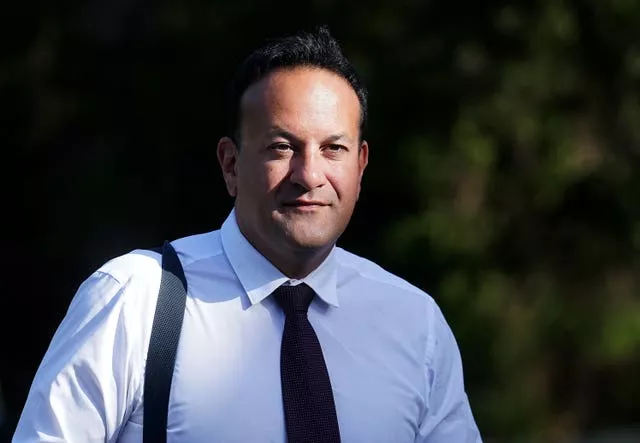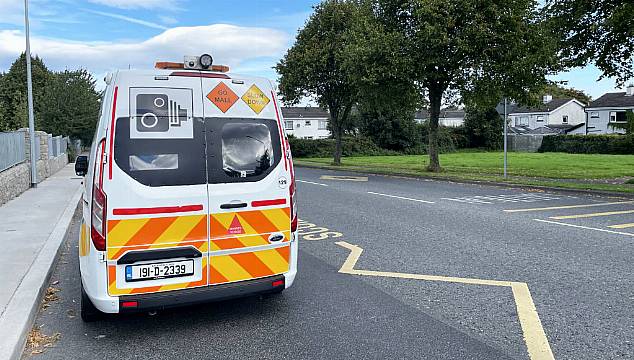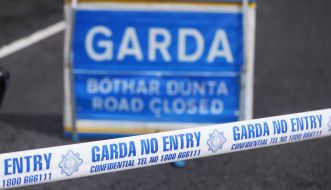The Taoiseach has called for a return of shock safe driving adverts as he warned that Ireland has gone backwards on road safety.
Leo Varadkar was commenting after proposals to lower speed limits on many roads were outlined by a ministerial colleague.
Minister of state Jack Chambers, who has responsibility for roads safety, said the planned reductions would have a significant impact in reducing serious collisions.
The speed limit review has been ongoing for two years, but Mr Chambers said work to implement the reductions would be fast-tracked amid concerns around the rising number of road deaths in Ireland.
Fatalities in 2023 are up significantly on recent years.
Two further deaths were announced by gardaí on Wednesday, bringing the total this year to 129.

There were 25 deaths in August alone.
Proposals set to be brought to Cabinet would see the speed limit on rural and local roads reduced from 80km/h to 60km/h.
In urban, residential and other built-up areas the limit would be cut from 50km/h to 30km/h.
The limit on main arterial routes in towns and cities would be capped at 50km/h.
On national secondary roads, the baseline would fall from 100km/h to 80km/h.
Current limits of 120km/h on motorways, 100km/h on national primary roads and 80km/h on regional roads will stay the same.
Under the proposals, local authorities will have the discretion to increase limits on roads where baselines have been reduced, if engineers deem a higher limit is appropriate to the road design.
Mr Varadkar, talking about the general issue of road safety and not a specific fatal collision, explained the rationale for reducing speed limits.
“This isn’t about trying to bring down speed limits for the sake of it,” he said after a cabinet meeting in Co Wicklow.
“And it’s certainly not about trying to collect revenues from people who are speeding.
“That’s not what we want at all.
“We want to see is people being safe on the road, driving within speed limits, not using mobile phone while driving, which is extremely dangerous, and not using drugs or alcohol while driving.
“And the main message I think we need to put across to people is that we’ve gone backwards in terms of road safety.
“A terrible number of people have lost their lives on our roads this year, particularly young people.
“It really is heartbreaking.
“I think one thing we’ll have to reinitiate is a very strong public advertising campaign.
“I know a lot of people didn’t like those shock ads of the past but I do think they were effective.
“And we haven’t seen them for quite some time.
“And there is going to be renewed political focus and renewed political impetus on the whole road safety issue, very much led by minister Chambers and minister McEntee (justice minister Helen McEntee).”

Under the speed limits proposals, local authorities will have the discretion to increase limits on roads where baselines have been reduced, if engineers deem a higher limit is appropriate to the road design.
Speaking on his way into Cabinet on Wednesday, Minister for Higher and Further Education Simon Harris said: “I think it has been a summer of extraordinary concern for people across the country when it comes to road safety.
“We have seen far too many tragic events right across Ireland and our hearts go out to all those who have lost people.”
He urged people who are travelling on roads that are unfamiliar to them to take care, particularly third-level students travelling to new accommodation ahead of the academic year.
“I don’t think there’s any one thing, quite frankly, that has to be done,” he said, adding that nothing should be taken off the table to address the problem.
Enterprise Minister Simon Coveney said he “strongly supports” plans to reduce speed limits on rural roads, saying there was “inconsistency across the country”.
“This isn’t a short-term response by Government in the context of the awful tragedies that we’ve seen this summer, this is something that’s been in preparation for quite some time,” he said.
“This isn’t some kind of blip, this is because road safety isn’t on people’s minds as much as it should be when they’re driving,” he said, adding that increased enforcement was also needed.
Sarah O’Connor of the Road Safety Authority said research indicates there was a “significant” change in drivers’ attitudes and behaviours during the Covid-19 pandemic.
“But now what we’re seeing with the return to norm is those behavioural breaches, attitudes and behaviours that people have brought to bear, they are now really having a very significant impact,” she said.
“So, for example, one of the pieces we’re very concerned (about) is we have seen a 10% reduction of the number of people who report that they or their family members and friends consider drink driving to be inappropriate or socially unacceptable.
“A 10% change over the course of the last 10 years, while people might say the alcohol conversation is done and dusted, to us that’s a key behaviour that we need to (double down on).”

She said there was a similar concern with distracted driving, and that their survey indicates that around 30% of people check their notifications or social media status while driving, while a further 24 per cent of people say they take photos or videos while driving.
Mr Chambers is to bring a road safety Bill before the Oireachtas this term and he said the timeframe for developing detailed guidance for local authorities would be reduced from one year to around three months.
But he acknowledged that it could be late 2024 and into 2025 before speed limits were reduced, as local authorities had to undertake a significant exercise of assessing all roads affected.
On Monday, Justice Minister Ms McEntee announced a 20 per cent increase in the use of speed cameras on Irish roads in response to what she described as “worrying trends” around increasing road fatalities.
Ms McEntee said an additional €1.2 million is to be allocated for GoSafe vans, providing for an extra 1,500 hours of monitoring per month until the end of this year.
More than 860 drivers were caught speeding during a Garda “slow down” day initiative this week.
One of the 865 motorists detected driving in excess of the speed limit was travelling at 161km/h in a 100km/h zone in Co Louth.







